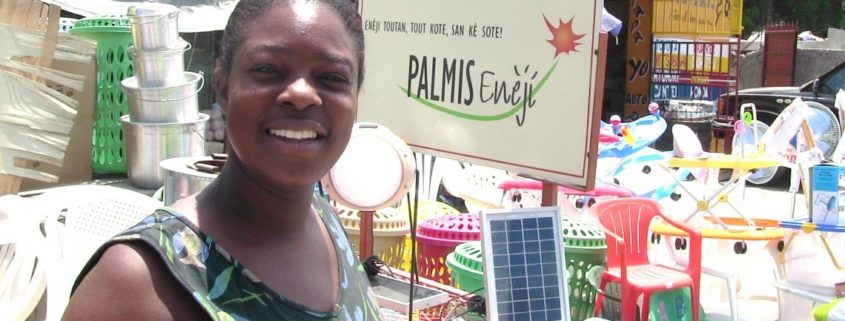Palmis Enèji: from NGO to enterprise – the ...
In 2012, the French NGO EDM launched a programme to distribute Palmis Enèji cooking and lighting appliances to meet energy demand among the poorest sections of the Haitian population. Two years ago, that social business became a public limited company. This change in status and a partnership with Total Haiti and the microfinance institution PMS has enabled it to expand its activities and will help to underpin its sustainability.
Haiti, one of the poorest countries in the world1, has very high levels of energy poverty (72% of households have no electricity). Haitian families use candles and kerosene lanterns for lighting and 95% of households use very basic stoves and wood or charcoal for cooking, thereby exa- cerbating the problem of deforestation. These cooking arrangements are often inefficient and the fumes cause respiratory diseases.
However, more suitable equipment which is less damaging to human health and the environment does exist. Solar lanterns provide better quality lighting and are cheaper in the long term. Improved stoves and table-top cookers powered by liquefied petroleum gas (LPG)2 use less energy for cooking. But such appliances are hard to obtain in Haiti and very few financial service companies are prepared to finance their purchase. Palmis Enèji was set up – initially as a programme designed and managed by the French NGO Entrepreneurs du Monde (EDM) – to boost their distribution.
Changing status for sustainable action
EDM applies a social entrepreneurship model to support the distribution of appliances that have a very positive impact on health, the economy and the environment among the poorest populations in developing countries. In Haiti, Entrepre- neurs du Monde set about distributing gas- fired table-top cookers and improved wood/ charcoal-burning stoves and solar lanterns. The Palmis Enèji project was launched in 2012 as an Entrepreneurs du Monde programme. Because it was an NGO-sponsored programme, Palmis Enèji was able to take the time to carry out a market survey and test its model (recruit a management and sales team, set up the first franchise outlets, develop a range of products, etc.). It was primarily during this phase that it embarked on social marketing nationwide.



